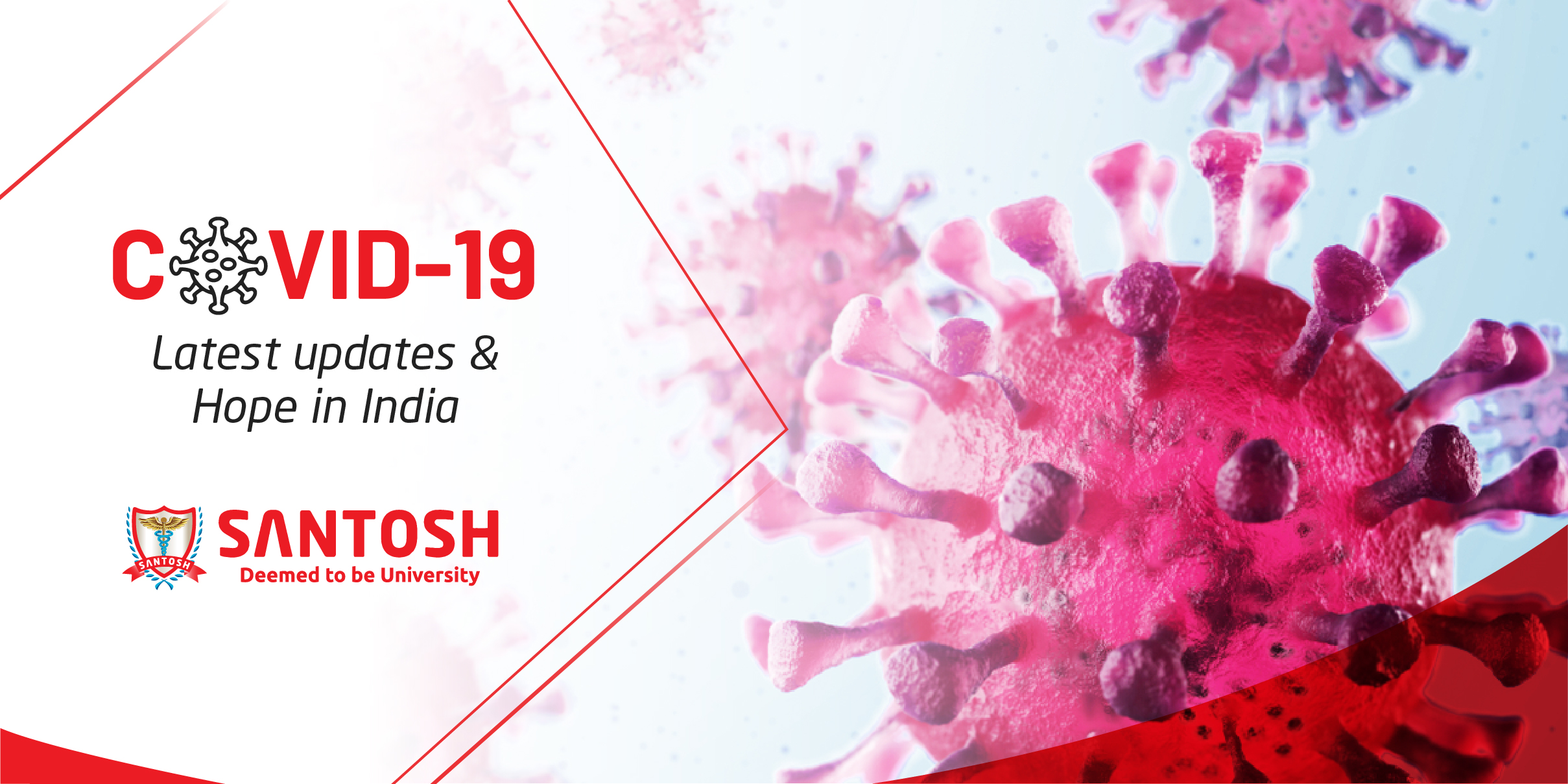
Covid 19 update in India as on 13.08.2020 at 10.00 AM-
India
Coronavirus Cases:
2,396,637
Deaths:
47,033
Recovered:
1,695,982
ACtive cases
The country has the third-highest cases in the world after the US and Brazil.Maharashtra, Tamil Nadu and Andhra Pradesh have reported the highest number of cases. However, infections are rising rapidly in states like Karnataka and Uttar Pradesh.
In India deaths as a proportion of known infected cases has been falling consistently. Though far greater numbers of deaths due to novel Coronavirus are happening these days, the deaths as a proportion of known infected cases have dropped below 2 per cent of the total cases for the first time now since the first lockdown.
Prime MinisterMr.NarendraModi said Containment, Contact tracing, and Surveillance are the “most effective weapons” in the battle against Covid-19. The Prime Minister urged the chief ministers to follow the mantra of testing and tracing all those who have come in contact with an infected individual within 72 hours.
Globally, over 20 million people have been infected with the novel coronavirus, including 7,42,018 deaths. Amid race for an effective vaccine worldwide, Russia has approved a Covidvirus vaccine for public use without the final phase of human trials. The vaccine, Sputnik V, has cleared regulatory approvals in record time, raising concerns over its safety and effectiveness. But, it is a long way from being available in India, if at all.
Research is happening at breakneck speed. About 140 are in early development, and around two dozen are now being tested on people in clinical trials.
The virus spreads easily and the majority of the world's population is still vulnerable to it. A vaccine would provide some protection by training people's immune systems to fight the virus so they should not become sick.This would allow lockdowns to be lifted more safely, and social distancing to be relaxed.
A vaccines typically require years of research and testing before reaching the clinic but scientist hope to achieve the same amount of work in only a few months.
However, no-one knows how effective any of these vaccines will be.Most experts think a vaccine is likely to become widely available by mid-2021, about 12-18 months after the new virus, known officially as Sars-CoV-2, first emerged.
It is hard to know without knowing how effective the vaccine is going to be.It is thought that 60-70% of people needed to be immune to the virus in order to stop it spreading easily (known as herd immunity).
But that would be billions of people around the world even if the vaccine worked perfectly.
It will, almost inevitably, be less successful in older people, because aged immune systems do not respond as well to immunisation. We see this with the annual flu jab.
It may be possible to overcome this by either giving multiple doses or giving it alongside a chemical (called an adjuvant) that gives the immune system a boost.
If a vaccine is developed, then there will be a limited supply, at least initially, so it will be important to priorities.
Healthcare workers who come into contact with Covid-19 patients would top the list. The disease is most deadly in older people so they would be a priority if the vaccine was effective in this age group.
The expert group on Covid19 vaccine administration will form guidelines on creation of a digital infrastructure for inventory management, procurement mechanisms including both indigenous and international manufacturing and delivery mechanism of the vaccine, including tracking of vaccination process with particular focus on last mile delivery.
Recently the expert group discussed on broad parameters guiding the selection of COVID-19 vaccine candidates for the country and sought inputs from Standing Technical Sub-Committee of National Technical Advisory Group on Immunization (NTAGI).